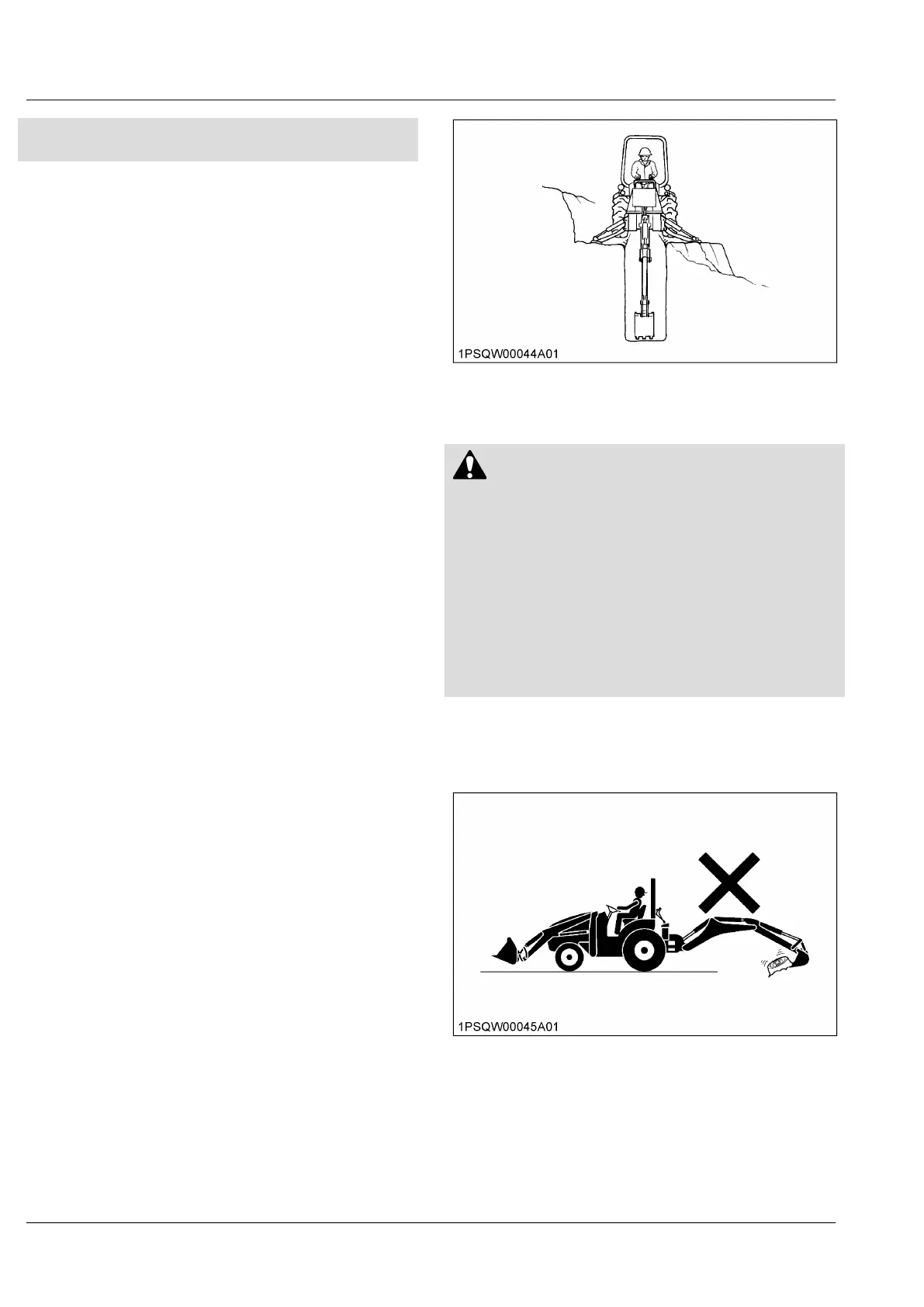• To reduce the risk of overturn on a slope, place
the spoil to the high side of the excavation.
1. Lower the stabilizers and remove the weight of the
backhoe from the rear wheels. However, one or
both rear tires should remain in light contact with
the ground.
When you place the stabilizers on an unusually
steep slope, see 1. Placing the stabilizer on an
unusually steep slope on page 110.
Preceding step will give the backhoe the widest
possible stance and the lowest center of gravity.
NOTE :
• Raising the rear wheels too high will reduce
digging depth and exert undue stress on the
frame components of the backhoe.
2. Lower the bucket of the loader to give the backhoe
unit a tri-pod stance.
With the bucket of the loader in ground contact,
bounce of the front tire will not be a factor in overall
control.
3. When possible, lower the cutting edge of the bucket
of the loader vertically into the ground surface.
Lowering the cutting edge of the bucket of the
loader will assist the stabilizers, not allowing the
unit to shift, while excavating.
However, on a slope, you should use the bottom of
the bucket and only the side that contacts the
uneven terrain. Too much loader-down-pressure, on
a slope, will restrict the unit from being correctly
leveled and will place an undue twist through the
bucket of the loader and lift arms.
1. Placing the stabilizer on an
unusually steep slope
Following procedure is recommended when a wall, tree
line, or other obstruction prevents placing the backhoe
spoil on the high side of the excavation.
1. Cut a level surface with the loader and pile the spoil
on the downhill side.
2. Back drag and pack the spoil which will support the
stabilizer on the low side.
GENERAL BACKHOE
OPERATION
WARNING
To avoid serious injury or death:
• Do not dig under the stabilizer or tractor,
especially in soft or sandy condition.
Take extra precaution in wet or thawing ground.
Wet or thawing ground can become unstable
very quickly and may collapse under the weight
of the machine and may tip over.
• Use care for buried material such as electrical,
telephone, gas, and water lines. When in doubt,
contact local utility companies for their buried
location.
IMPORTANT :
• Do not use the tractor to pull out tree stumps
with the boom dipper extended and the bucket
in its crowded position.
1. Digging with operating the
dipperstick
1. Lower the bucket to the ground.
2. The same as with bucket digging, curl until the teeth
of the bucket are flat on the ground.
OPERATING THE BACKHOE PLACING THE STABILIZER
